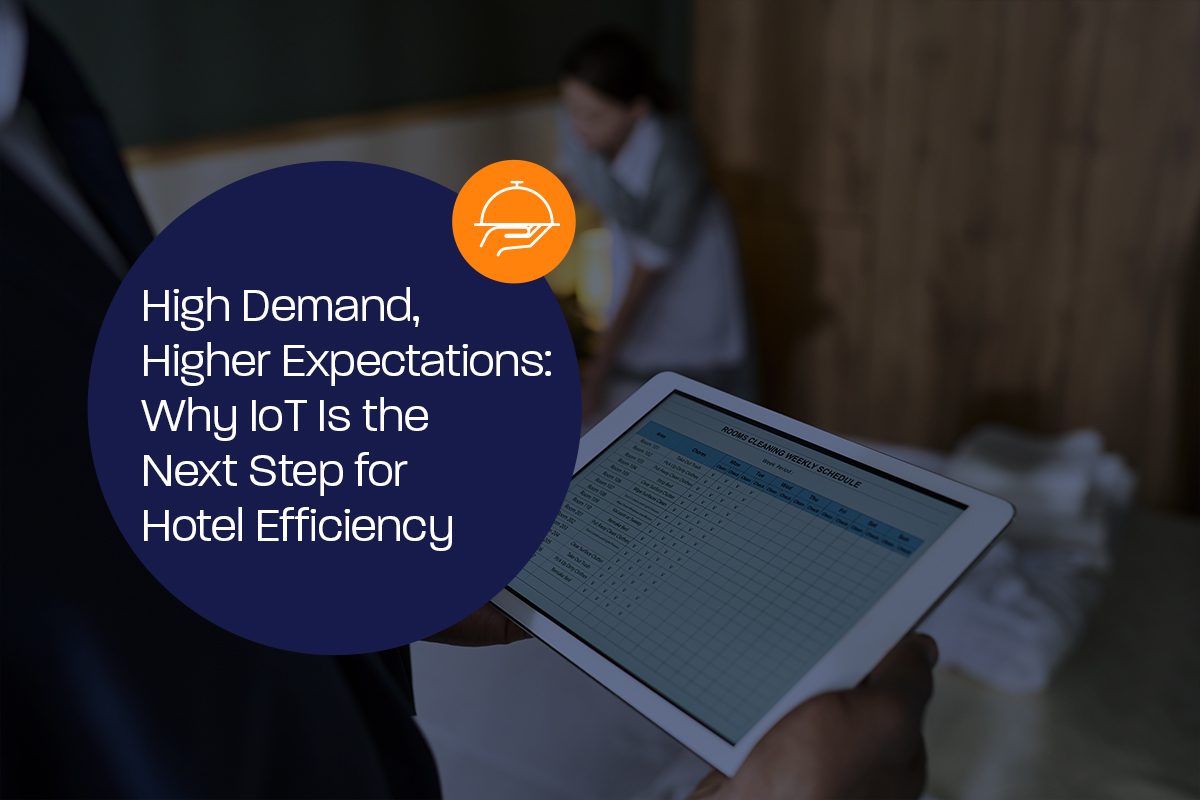In part three of our series, we discussed how hoteliers can promote employee safety with IoT (Internet of Things)-powered staff alert buttons. The fourth and final part of our Safety First Blog Series explores why IoT-powered digital food safety is paramount for risk mitigation at hotels.
A big part of the guest experience relates to the kitchens and restaurants they rely on for room service and routine dining at hotels. Regarding food services, risk management plays a huge role in every facet of operations, from food storage and prep to consumption. Perhaps unsurprisingly, gastrointestinal infections related to food or water consumption affect 30 to 70% of all travelers during or immediately after their trips, according to a 2015 study in BMJ Clinical Evidence.
When food is not handled or stored appropriately, serious illnesses can occur, as was the case in August of 2023 for at least 32 people attending a union conference at a hotel in Los Angeles, California, who became sickened from an outbreak of Shigella bacteria. As a result, six of those people were hospitalized, and at least one individual filed a lawsuit after experiencing life-threatening sepsis and kidney failure - claiming the hotel served contaminated food that caused the outbreak. This incident is one of many underscoring a pressing need for hotels to ensure they’re doing their part to protect customers, brand reputation, and, ultimately, profits, by adopting the right strategy. Digital food safety can help them accomplish this in several ways.
Maintaining food safety and compliance encompasses many factors, with cold and hot storage parameters of notable importance since they directly affect the storage, preservation, and consumption of perishables served to the public. The temperatures of cold and hot storage areas must be maintained at certain levels to ensure their viability. Malfunctioning cooling units or doors left open too long can cause temperatures to deviate from their norms, resulting in food spoilage or food loss, wasted energy and resources, and most importantly, illness.
If contaminated food is consumed, the costs for foodborne illness outbreaks can be astronomical – potentially costing between $4,000 and $2.1 million, depending on the severity of the incident, legal fees, and fines. Since branding is key for success in hospitality, it’s difficult to quantify the damages these incidents cause to a hotel’s reputation - with some incurring irreparable reputational losses. This was the case for Chipotle, whose reputation plummeted after more than 1,100 people across the United States from 2015 to 2018 became ill due to improper food safety practices at their restaurants. One survey showed that 37%, or about a third of those polled, said they ate Chipotle less frequently due to concerns about food safety issues.
Employing IoT-enabled temperature sensors in food service areas automates the monitoring and logging of food storage temperatures, while allowing operators to remotely monitor refrigerator and freezer conditions throughout large hotel facilities and even at multiple locations – all in real-time. These IoT-powered sensors work to automatically collect, transmit, and centralize temperature data into intelligent systems continuously and reliably. What’s more, without IoT temperature monitoring systems, staff are required to manually collect and record temperatures of cold and hot storage areas with spreadsheets and paper logs, which not only pulls them away from serving customers, but is prone to human error. By decreasing the mundane tasks needed for back-of-house (BOH) operations, IoT solutions enable staff to focus on higher-value priorities, such as ensuring guest satisfaction.
One IoT Solution, Infinite Possibilities: Unlock Powerful Efficiencies in Hospitality
Maximize your investment value and ROI, drive cost savings, and future-proof your hotel’s ecosystem with a single IoT solution infrastructure that scales seamlessly for additional use cases as your needs evolve.
Protect Hospitality Ecosystems with Smart, Connected Hotels
IoT plays a transformative, pivotal role in mitigating risk to daily hotel operations - from keeping pesky pests at bay, through enabling proactive leak detection, and providing safe environments for employees and guests. MachineQ, a Comcast Company, delivers proven, quick-to-market IoT solutions to help hoteliers automate and streamline risk mitigation so they can protect their brand reputation, ensure profitability, and delight guests for repeat business. Contact us today to learn how to get started.







